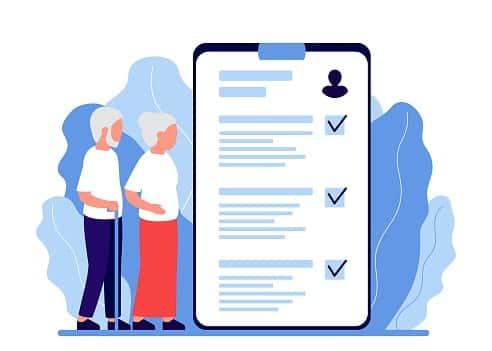Are weight loss treatments covered by insurance?
Insurance coverage for obesity treatment is available, but it can be limited. What obesity treatments does insurance cover? Is medical weight loss covered by insurance? That depends on the plan and the type of treatment.
As part of the Affordable Care Act (ACA), all marketplace health plans and many others must cover preventative obesity screening and counseling at no charge to you. That means you will not owe copays or deductibles or any other costs.
Medicare Part B covers obesity screenings and behavioral counseling if your body mass index (BMI) is 30 or more. BMI is a measure of body fat based on height and weight. To be covered, your primary care doctor or another qualified provider must offer the counseling in a primary care setting, such as a doctor's office.
You will not have to pay for these services, which include a dietary assessment and counseling that focuses on a diet and exercise regimen that will help you lose weight.
ACA health plans aren’t required to cover medications or surgeries used to treat obesity, although some do. Some states also have passed their own laws requiring coverage of various types of obesity treatments. For example, around two dozen states require individual, family and small group plans to cover bariatric surgery.
Health insurance plans that existed before the passage of the Affordable Care Act that have not been significantly changed don’t have to provide these services cost-free. Such plans are characterized as “grandfathered plans.”
In addition, some types of health insurance – such as short-term health plans – aren't required to offer these services.
Dr. Lloyd Stegemann, a member of the board of directors of the Obesity Action Coalition and the director of metabolic and bariatric surgery at Bay Area Hospital in Corpus Christi, Texas, wishes coverage of obesity drugs and surgery was more widespread. He believes the reluctance on the part of many insurance plans to cover these treatments grows out of the erroneous belief that poor personal behavior is the sole source of obesity.
“We have such a better understanding of what causes obesity today certainly than we did even 10 years ago,” he says. “And we know that this is not about fault, it’s about physiology. If we don’t control the physiology, we’re never going to get on top of this obesity epidemic.”
Are weight loss programs covered by insurance?
The National Conference of State Legislatures says 16 states require plans to cover some weight loss programs, including at least some coverage and reimbursement for:
- Dietary or nutritional screening
- Counseling and/or therapy for obesity, sometimes including weight loss programs
Another seven states require coverage for nutritional counseling or therapy, but only when the diagnosis or treatment is related to diabetes.
The weight loss programs that are covered and the amount of coverage varies. Weight Watchers, for example, may be covered by some insurance, or the insurance company may offer a discount through a wellness benefit.
Does insurance cover weight loss pills?
Some health insurance companies cover obesity drugs, but other insurers balk at covering such medicines. Why doesn’t insurance cover weight loss drugs?
“Once you go on an obesity medication, you generally have to stay on it for life,“ Stegemann says. “And so it’s a cost concern for them.”
If your doctor prescribes medications for weight loss or obesity, contact your health insurance company to find out if it will cover them. You might find the information on your health insurer’s website. Or, you can learn more by calling a customer service representative and asking questions such as:
- Which medications are covered and for how long?
- Will I owe a copay?
- Am I restricted to getting my medicines from specific pharmacies?
As a general rule, Medicare and Medicaid do not cover weight loss medications.
Will insurance cover Wegovy, Ozempic, or Mounjaro?
Semaglutides, sold under brand names like Wegovy, Ozempic, and a similar drug called Mounjaro, are gaining popularity for the treatment of obesity. Most insurance companies don't cover these drugs, which are actually diabetes treatments, for obesity, although there are some exceptions. Medicare and Medicaid will not cover it, as they don’t cover any weight loss prescription drugs.
Does insurance cover weight loss surgery?
Insurance coverage varies when it comes to weight loss surgery. Some health insurance companies don’t cover the cost of weight loss surgery. But, in other cases, an insurer will foot the bill as long as you meet certain conditions.
For example, the insurer may want you to have a full medical workup. You and your doctor likely will have to make a pre-authorization request for the surgery. The health insurance company also may not approve surgery until you have shown documented proof that you have undergone a physician-supervised weight loss program.
In addition, Stegemann says some insurers charge bariatric deductibles that are separate from the patient's regular deductible. Insurers also may place a cap on the amount of coverage they offer, with the patient on the hook for the remaining costs. Finally, you might have to wait up to a year while you try weight loss programs and counseling before the insurer will allow you to schedule the procedure.
Medicare covers some bariatric surgical procedures, including gastric bypass surgery and laparoscopic banding surgery. But to be approved, you have to meet conditions related to morbid obesity.
Medicaid covers weight loss surgery in most states.
Health insurance finder tool

COBRA
Learn more about COBRA
How much is your annual household income?
How many members are in your household?
Medicare
Medicare costs vary depending on which option you choose.
Learn more about Medicare costs.
Medicaid

Parent's employer-sponsored health insurance

Spouse's employer-sponsored health insurance

Employer-sponsored health insurance

Preferred-provider Organization (PPOs)
Preferred-provider organization (PPOs) plans are the most common type of
employer-based health plan. PPOs have higher premiums than HMOs and HDHPs, but
those added costs offer you flexibility. A PPO allows you to get care anywhere
and without primary care provider referrals. You may have to pay more to get
out-of-network care, but a PPO will pick up a portion of the costs.
Find out more about the differences between plansHealth maintenance organization (HMO)
Health maintenance organization (HMO) plans have lower premiums than PPOs.
However, HMOs have more restrictions. HMOs don't allow you to get care outside
of your provider network. If you get out-of-network care, you'll likely have to
pay for all of it. HMOs also require you to get primary care provider referrals
to see specialists.
Find out more about the differences between plansHigh-deductible health plans (HDHPs)
High-deductible health plans (HDHPs) have become more common as employers look
to reduce their health costs. HDHPs have lower premiums than PPOs and HMOs, but
much higher deductibles. A deductible is what you have to pay for health care
services before your health plan chips in money. Once you reach your deductible,
the health plan pays a portion and you pay your share, which is called
coinsurance.
Find out more about the differences between plansExclusive provider organization (EPO)
Exclusive provider organization (EPO) plans offer the flexibility of a PPO with
the restricted network found in an HMO. EPOs don't require that members get a
referral to see a specialist. In that way, it's similar to a PPO. However, an
EPO requires in-network care, which is like an HMO.
Find out more about the differences between plans
Learn more about individual insurance plans
How does obesity affect health insurance?
About 19% of children and 42% of adults are obese, according to the Centers for Disease Control and Prevention (CDC). Obesity has been tied to many health conditions, including:
- Diabetes
- Heart disease
- Some types of cancer
All told, obesity costs the health system $147 billion a year, the CDC says.
A 2021 study by the Journal of Managed Care and Specialty Pharmacy found that the cost of medical care for adults with obesity compared to those at a healthy weight was 100% higher on average. For adults with class 3 obesity (BMI of 40 or higher) the increase in cost was 233.6%.
Given all these costs, can health insurance companies charge you higher premiums if you’re obese? Not under the ACA.
“Health insurance companies can't charge you more, but your employer can,” Stegemann says.
For instance, some companies will create a program that “basically taxes you for certain bad habits,” he says. You might pay more for health insurance if you’re a smoker or if you are obese.
Frequently asked questions
Are weight loss clinics covered by insurance?
Whether health insurance covers weight loss clinics depends on your specific plan and the reasons for seeking weight loss treatment. Some insurance plans cover weight loss programs if they are medically necessary, such as for treating obesity or related health issues like diabetes or heart disease. It's important to check with your insurance provider to see if they cover the specific weight loss clinic or program you're interested in.












